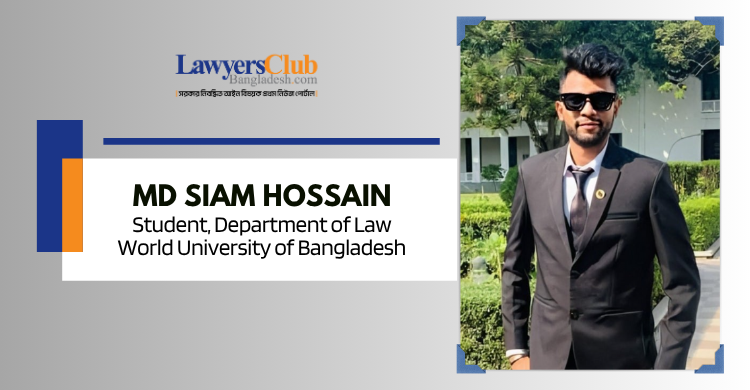Drug Addiction in Universities of Bangladesh : The Hidden Epidemic

Md Siam Hossain : Drug addiction has gradually become the most nefarious menace in Bangladesh universities over the last few years. It is no more an issue of streets or slums; now, it has even invaded classrooms, hostels, rooftops, and even group study rooms of both public and private universities. Some students, belonging largely to decent families, are victims of this addiction and do not know the manner in which it is destroying their futures and breaking up families that had desired them to make it.
A few recent studies have raised some unexpected results. A 2023 report by the Department of Criminology at Dhaka University indicated that nearly 34% of university students in Bangladesh had tried drugs at least once. Of them, more than 18% are regular users. In another 2022 BRAC study, it was found that more than 70% of all the new drug users in the country are between 15 and 30 years old, and they are predominantly students. The highest usage of yaba, ganja, heroin, alcohol, and sleeping pills like clonazepam or diazepam is seen. Yaba has also become popular especially among university students because it is easy to get and very cheap.
These vices not only are ruining the academic life of students but also causing huge emotional, mental, and financial damage to their families. Fathers are mortgaging their properties or tapping into their life savings to provide their children with education in cities like Dhaka or Chattogram, only to find out later that their sons or daughters have become drug addicts. Students steal money within the house, cheat their parents, and even sell household items to buy drugs. In some tragic cases, drug-dependent students turn against their parents. One such recent case in Cumilla is regarding a good student who got addicted to yaba in his second year of university. Not only did he drop out of university, but he also physically attacked his father when the latter refused to give him money.
There have been quite a few shocking incidents caused by consumption of drugs. In Dhaka, a private university student died of a drug overdose during a birthday party in January 2024. In 2023, Chattogram University students were accused of giving sleeping pills to a female student and taking turns having their way with her. In Sylhet, a university student stabbed his roommate to death for his share of drug money. These are real stories and not hearsay, and they indicate to what extent this problem has seeped into our education system.
Law in Bangladesh is strict when it comes to drug-based crimes. The Narcotics Control Act, 2018, states unequivocally in Section 36 that the use or possession of illicit drugs like yaba, heroin, or cocaine may invite life imprisonment and, in serious cases, even the death penalty. Section 41 and 42 allow police and drug officials to arrest suspects without warrant and search premises if they hold the view that drugs are stored or consumed. But despite such stringent laws, the real problem is the absence of information, monitoring, and mental health services.
Addiction doesn’t necessarily mean crime—most times it’s the result of unresolved emotional pain, depression, stress, or loneliness. Several recent studies, including one by BRAC University, have identified that student mental health and drug abuse are directly connected. Many of those who become addicted are also struggling with pressure to perform, anxiety, or heartbreak. But since mental health is not accepted as a topic of discussion in most of Bangladesh, no help is sought out, but rather, students resort to drugs to deaden their pain.
Most of the universities lack adequate counseling programs or drug prevention initiatives. The authorities either turn a blind eye to the problem or cover it up to ensure their institution does not get tainted. Because of this, more and more students silently fall victim. Meanwhile, parents who stay far away do not have a clue about what is going on in their children’s lives until the tragedy occurs.
This is not just a personal problem of a student—it is a national crisis. Bangladesh’s future leaders are being silently destroyed by drug addiction. Unless we make some noise, we will lose more students, more families will be torn apart, and the nation will bear the consequences. It is time for universities, parents, the government, and society to take real action and tackle this problem.
We must speak openly on this issue, conduct awareness campaigns, provide counselling support in every university, and apply the law suitably without political bias. At the same time, we must consider that punishment is not always the answer. There are a huge number of addicted students who need help, not incarceration. They need guidance, not judgment.
Let us not wait for the next deadly overdose, the next broken family, or the next lost dream. Now is the time to act before addiction continues to rob more of our best minds in silence.

